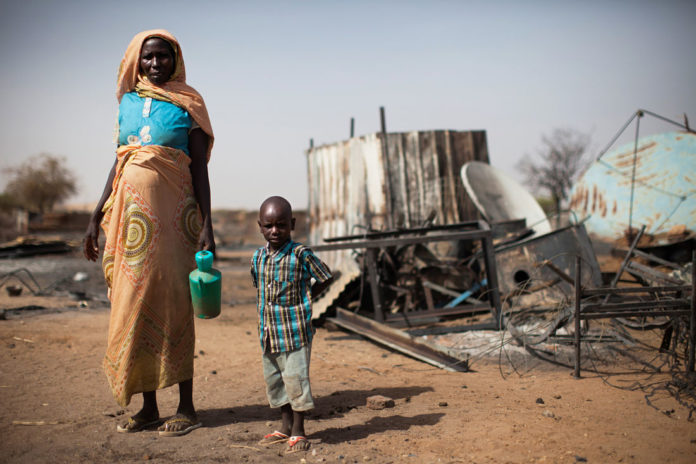
|
FAO Director-General highlights need for innovative approaches focused on pro-poor actions in Africa
|
|
In their fight to end hunger and improve nutrition, African countries have the opportunity to tap into Japan’s knowledge of smart technologies, agricultural machinery and marketing, as well as from the East Asian nation’s high food safety and nutrition standards, and culture of healthy foods and diets, said FAO Director-General Qu Dongyu today.
The Director-General also expressed appreciation for the fruitful FAO-Japan collaboration in Africa, which has led to the development of efficient and inclusive rice value chains, a better measurement of food loss and waste among food industries, and the strengthening of Small and Medium Enterprises. “We continue to count on Japan’s generosity in scaling up its support to the improvement of nutrition in Africa,” said the FAO chief. Qu made the remarks at a NEPAD–JICA event focused on improving nutrition across Africa through the Initiative for Food and Nutrition Security in Africa (IFNA). The Director-General’s participation at the event is part of a week-long visit to Japan – his first trip abroad since taking the helm of the UN agency on 1 August 2019. Speaking to African heads of states, agriculture ministers and representatives of the Japanese government, the Director-General made a strong case for the need to step up hunger-fighting actions in Africa. According to the latest data, hunger is on the rise in almost all African sub-regions making Africa the region with the highest prevalence of undernourishment. Fighting hunger and all forms of malnutrition is FAO’s main priority in Africa “Fighting hunger and all forms of malnutrition is, and will continue to be, FAO’s main priority in Africa,” said Qu. The Director-General highlighted the need to address the various aspects of nutrition, which can lead to substantive socio-economic improvements, and for innovative approaches and new ideas with a focus on pro-poor and result-oriented actions. The Director-General also stressed FAO’s unique role in strengthening countries’ capacities to evaluate and monitor their nutrition situation, providing standards and norms, and supporting knowledge transfer. FAO, together with its partners, is working to increase African farmers’ productivity and access to nutrient-dense foods as well the availability of such foods through investments in agriculture, regulatory frameworks, public-private partnerships, technology and innovation. Qu underscored that the IFNA initiative is an important mechanism to achieve these goals and that FAO will continue supporting it. |












